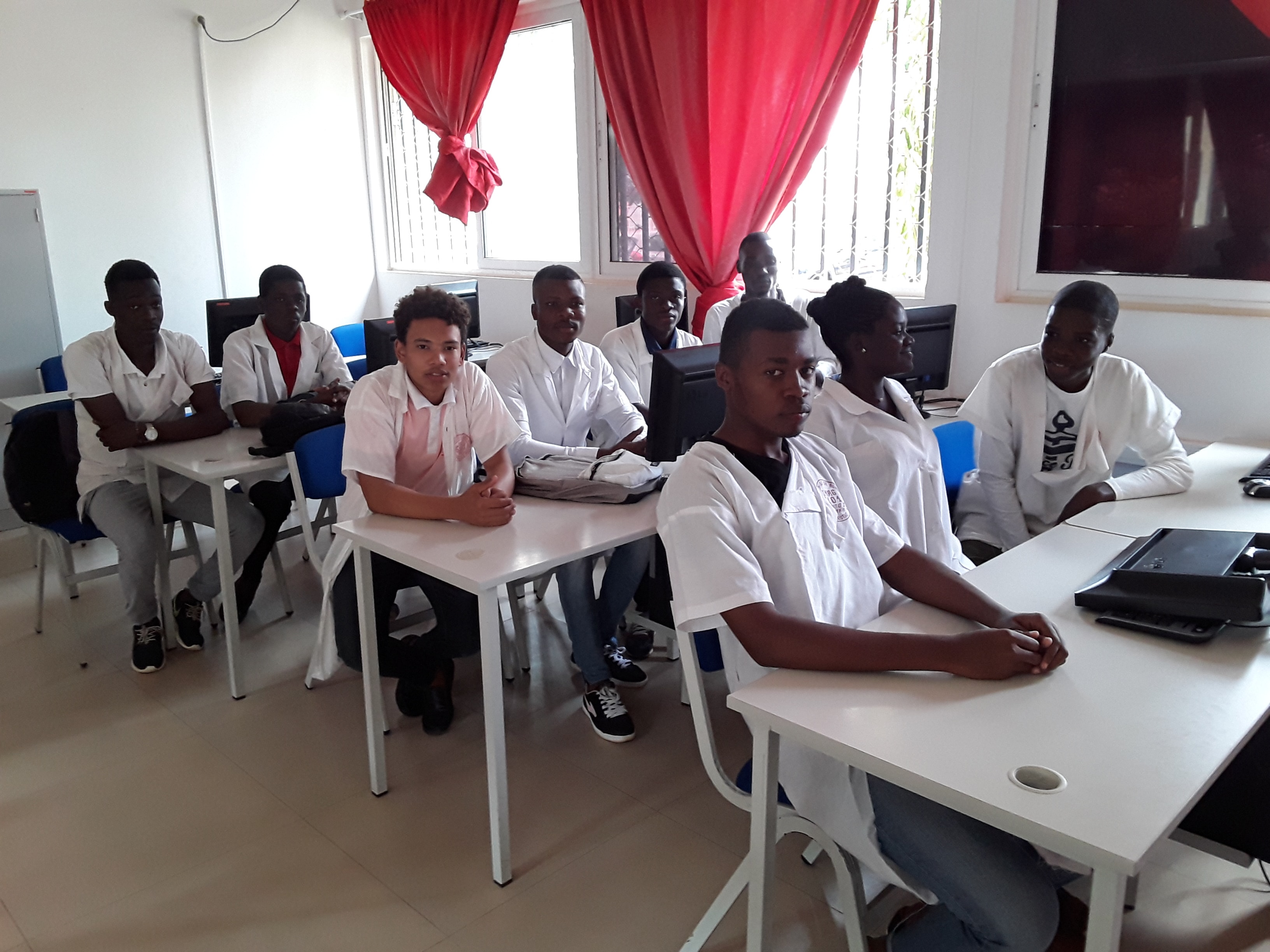RETEP: catalyzing the reform between Angolan change-makers
The Angolan Ministry of Education, Focus Education, a company dedicated to Angolan education services—and its impact investor, Green Innovations, are working in coalition to improve the quality of the technical education in Angola. They believe that every nation’s present and future depends on competent professionals to catalyze social, environmental and technological progress.
A concrete case of this synergy is The Reform of National Technical Education System – RETEP initiated in 2001, this Project engages 98 public technical high schools throughout the country to solve the problem of inadequacy of young school graduates’ skills for job market demands. By solving this problem, RETEP’s intended impact isto promote economic development through capacitating students with the required skills for the job market, thereby helping promote higher quality work and greater value added job in the economy.
The methodology adopted by RETEP to supply the job market with a qualified local workforce is through trainings to schools’ Principals, Pedagogy Directors and Teachers. Since this functional body is responsible for enabling managerial and methodological processes at school, when they are trained in disciplines such as: school management, human resources and pedagogy, “they can improve not only administrative efficiency, but also a more effective use of learning approaches and tools from teachers towards students, enabling the latter to reach their full potential”, said: Dr. Miriam Aço, the Pedagogy Coordinator of RETEP.
Till the end of 2016, RETEP provided 102 professional training courses and 40 workshops in 18 different training areas, benefiting around 8.000 public school teachers and 98 Directors.
During the impact assessment completed in October 2017, the directors of four public technical high schools in Luanda, Catumbela and Lubango were surveyed about their perception of meaningful changes in the school’s daily activities after these trainings. Their answers qualified the experience as very beneficial from creating an environment of shared-management and meaningful managament-for-results perspectives.
Director Philomene Carlos from the Instituto Médio Técnico Industrial de Luanda (IMIL) (in the team pic) admitted that the trainings helped her to understand how to better lead teams and co-share activities at the institution level through delegation and teamwork through individual expertise-sharing. “We adopted a participatory management process, which involves the surrounding school community in decision-making processes that represents the school goals putting the students’ needs in first place”, she said.
Similary, Director Bernando Luvalu, from another institute – IMAG Luanda said that “these trainings changed our managerial approach since the current evaluation approach was previously centered in a terms of merit /punishment response to performance. *Today we share more responsibilities thanks to a more dialogue-driven process.”He admitted that this experience them of a necessary focus and dedication towards a more integrative and holistic vision of the whole school as system for positive change in the community.
From a pedagogic perspective, the trainings led those schools to adopt a proper development of a curriculum and a class plan and these new practices enabled the teachers to better foresee and evaluate their students’ activities along the school year. Inquired about how effectively the reforms impacted their activities, pedagogy Directors and teachers responded that now they feel like “managers” in a classroom, facilitating the student’s learning and evaluation aligned to measurable indicators, which are assessed and compared yearly.
Critiques were with regards to the short time of the training programmes (lasting several weeks, when months were preferred) and about the didactic materials (the manuals) also emerged from teachers. Overall, they strongly consider the need to update them with greater frequency and to contextualize those materials in a culturally orientated perspective. These are important lessons learned that Focus Education will take into consideration before issuing new manuals.
Finally and more importantly is the perception of the students, those who will orchestrate the deepest reform in the Angolan society. Asked about satisfaction on what they have been learning on school, a group of 100 student in those four schools, have answered that are: very satisfied (33%), satisfied, (48%), reasonably satisfied (17%), with just 3% reporting dissatisfaction.Among the reasons for satisfaction are the improvements of the techniques to captivate and engage them in class and beyond, and also the newfound confidence they feel to bring what they learn into practice in the labor market. However, critiques from this key group are related to the perception of limited knowledge that some teachers have in the discipline of study.
In fact, the numbers are quite impressive. So far 135.278 students benefited directly and indirectly from all the training, logistical and didactic activities provided by the school. From this group, 77.823 are male and 57.455 are female students who now feel more encouraged to work in and for the Angola they imagine.
